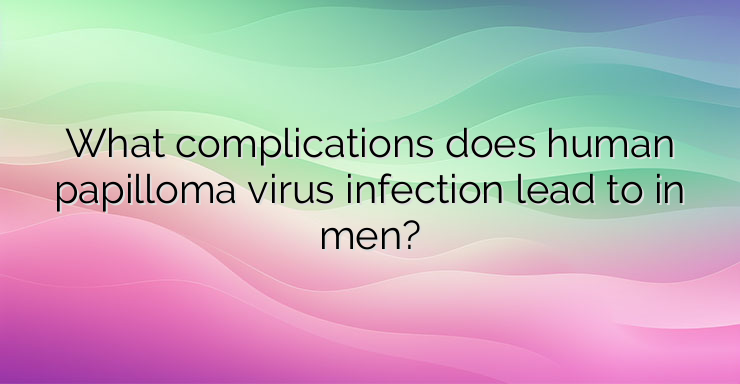Human papilloma virus (HPV) infection is transmitted through direct and intimate contact, including sexual contact in both sexes. The virus can usually spread from one person to another through oral, anal, or vaginal sex. If a person has an HPV infection, they can spread the virus even when they have never had visible symptoms. A person’s chance of contracting HPV increases due to certain factors, such as: Multiple sexual partners; Age, as HPV is more common in adolescence or young adulthood; Uncircumcised penis; Damaged skin Patients should consult a doctor if warts of any kind appear on their genitals or if warts appear that cause discomfort or pain. Although most men who have a human papillomavirus (HPV) infection do not show any symptoms, some develop growths or warts that may appear on: The penis; The testicles; Anus; Groin and thighs; Tongue and upper part of the mouth. Genital warts can be small or large, flat or raised or cauliflower-shaped. They can appear as a bump or group of bumps in the area around the penis, anus or genitals. These warts are often not painful, but can be aesthetically unpleasing. While some types of HPV can only cause genital warts, others can also cause cancer. In men, doctors have linked HPV to the development of the following types of cancer: HPV may be responsible for more than 90% of anal cancers; More than 60% of penile cancers are caused by HPV; About 70% of people with oropharyngeal cancer, which occurs in the back of the throat, base of the tongue and tonsils, may develop it as a result of HPV. Men who have weakened immune systems due to HIV or other reasons have a higher risk of developing HPV-related anal cancer than others. Men with HIV also tend to develop more severe genital warts, which are more difficult to treat. HPV infection does not necessarily mean cancer, but the HPV virus can cause changes in the body that can lead to cancer. A doctor may not diagnose cancer for years after a person is infected with HPV because changes in the cells that are affected by the virus build up very slowly. Symptoms of HPV-related anal cancer include: Bleeding, discharge, pain, or itching of the anus; Swelling of the lymph nodes in the anus or groin; Changes in toileting habits or the shape of stools when defecating Penile cancer can cause: Changes in the tissues of the penis, such as color, thickening of the skin or tissue buildup, or painless sores or lumps on the penis that may bleed. Cancer of the back of the throat can cause:Constant pain in the throat or ears; Persistent cough; Difficulty breathing or swallowing; Weight loss; Voice changes or hoarseness; Lumps or growths on the neck Medicine has not yet found a way to distinguish temporary HPV from HPV that can progress to cancer. References: 1. WebMD.HPV Infection in Men 2. STD Facts – HPV and Men – CDC 3. HPV infection in men – PubMed 4. MedicalNewsToday. HPV in men: Symptoms, complications, causes, and treatment 5. Human Papilloma Virus (HPV) – Cleveland Clinic


Leave a Reply